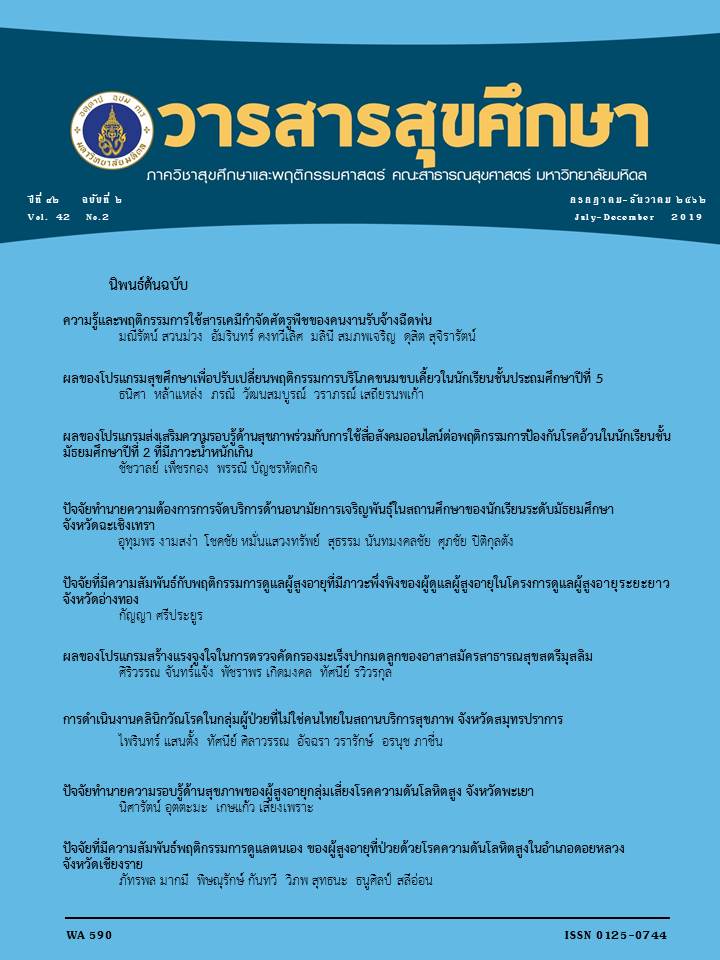Effects of Health Education Program For Changing Snack Consumption Behavior Among Grade 5 Students
Keywords:
Snack, Consumption behavior, Health education program, Grade 5 studentsAbstract
This is a quasi-experimental two-group pre-/post-test design aimed to evaluate the effects of health education program for changing snack consumption behaviour among grade 5 students. Samples were 46 grade 5 students, 22 in the experimental group and 24 in the comparison group. The experimental group received the health education program guided by the social cognitive theory concept, consisting of five 50-minute learning sessions based on observational learning process and peer-buddy support activities. The comparison group received usual learning class of the health education subject. Study period was 8 weeks. Data were collected using a structured questionnaire and a recording form for snack consumption. Chi-square test, independent sample t-test, paired sample t-test and z-test were employed for data analysis.
After the experiment, the experimental group had significantly higher mean scores of knowledge, self-efficacy and outcome expectation than those before the experiment(p<.001) and had also significantly higher mean scores of difference between pre and post-test scores as compared to the comparison group (p<.001). The proportion of students who had better improvement of snack consumption behaviour in the experimental group was significantly higher than that in the comparison group (p<.001). The results demonstrated a potential effectiveness of this health education program for promoting appropriate snack consumption behaviour that can be applied to contribute to nutrition-related school health education.



